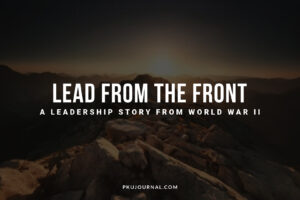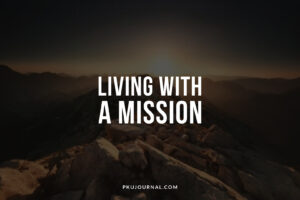Explore the raw and personal journey of dealing with PTSD and emotional triggers in this expanded blog article accompanying my podcast episode “Triggered.” Understand how past trauma affects present emotions and the struggle to stay grounded in everyday life.
Triggered: A Story About PTSD and Emotional Triggers
Disclaimer
This episode is about trauma from the perspective of someone who lives with PTSD. I won’t recount all of the reasons why I was diagnosed with PTSD. You can listen to the first episode of season one if you’re unfamiliar with that story. It’s called “Regaining Hope: My Journey to Rare Disease Advocacy.”
PTSD can affect anyone because anyone can experience trauma. Trauma comes in many forms. You can’t compare one person’s trauma to another’s because it is unique to each individual. If you choose not to listen to this episode, I understand. It might be upsetting. But if you do, please know that I am not commenting on or criticizing anyone else’s experience. I am not trying to minimize those who have a different traumatic experience. And I am not criticizing the way anyone chooses to speak about trauma. I am just trying to share one person’s experience. Mine.
My Thoughts on Being “Triggered”
Triggered. That word means different things to different people.
For some, it’s another way to say that they’re offended. For others, it’s more than that… it can refer to a strong emotional response to an idea or situation that is upsetting.
But… for someone living with trauma, being triggered is like a portal to another world.
One moment you’re fine. And the next… the world around you disappears.
And you are alone in your thoughts.
Totally… alone.
There’s no way for me to tell this story without getting personal. Many of the stories I share with you are personal but this one hits a little different.
Like my mental health story that serves as the foundational episode of this podcast, this one reveals things about me that I’m not excited to tell you. But I share here in the hope that my life experiences—the good and the bad, the successes and the failures, or at the very least the struggles—might help someone navigate their way through life.
Taking a trip through these memories isn’t pleasant. Because as I shared in that first episode, I live with post-traumatic stress disorder or PTSD. And part of my baggage is feeling judged as soon as I say that.
I’ve shared a lot of my experiences that contributed to this diagnosis. But this story… it’s an exploration of one moment that I always return to… when my mind, my heart, and my body feel transported 20 years into the past and I don’t simply recall a memory. I relive it.
The details of this story aren’t graphic but it is an exploration of a real, raw moment.
And it’s my way of expressing through a story… what it means to be “triggered.”
A Collision of Lives
I don’t think he was sober enough to realize this was the worst day of his life.
Disheveled hair, ruffled clothes, swaying back and forth. He was handcuffed in the back of a Louisiana State Police car. And I was standing right at the door, TV camera pressed against the window filming for the news.
I believe in the concept of innocent until proven guilty, and decades after my TV news career, I wonder how many people I implied were guilty even though innocent simply because I filmed them while handcuffed. Seeing that image is powerful. It creates an association of guilt.
But I regret nothing from this moment.
I had never been more angry in my life.
It wasn’t even just anger. It was controlled rage.
Maybe that makes you uncomfortable to hear me admit that. I’m uncomfortable sharing it. But it’s the truth. Because some things that happen in this world—the things that some humans do to other humans—anger is a natural response in moments like that.
I can only think of one other moment since when I was truly, undeniably, justifiably this angry. Because this man had been driving his convertible at a high rate of speed, pack of beer on the passenger seat… absolutely drunk.
Hammered.
And he hit a compact car head-on.
Was it a Dodge Neon? I can’t remember. But what I do remember—what I’ll never forget—is what I saw that day.
When you film for the news you look for the smallest of details. Anything visual that will communicate the essence of the story. Maybe it’s a deployed airbag. Or a shattered windshield. Or maybe it’s a firefighter using a tool commonly called the jaws of life, ripping open a car to extract a victim. One time while covering a motorcycle accident it was the boot of a deceased driver sticking out from the tarp that covered him. And his cell phone nearby, ringing incessantly.
But as I stood on this highway scanning the scene, something caught my eye. A sign hanging on the back driver-side window of the compact car.
It read “Baby on Board.”
The Haunting Echo of a “Baby on Board” Sign
That was over 20 years ago. But to this day anytime I see a “Baby on Board” sign, I’m immediately back at that scene.
It was a weekend afternoon. For me, just another day. For the drunk driver, a chance to throw caution to the wind. For the family in the car, a traumatic event.
And a compact car… when they get hit just right it’s like an explosion. There may be no fireball but it’s an explosion of debris. It’s like the front end of the car just disappears. Or in some cases, it gets pushed so far back into the main cabin of the car that, well… I don’t have to say what happens to the driver.
And two smells are unavoidably linked to this memory—beer and radiator fluid. The convertible reeked of alcohol. The case of beer was still sitting on the front passenger seat, and it spilled everywhere. And the radiator fluid—that’s a specific memory of countless accidents. After covering hundreds, maybe thousands of car wrecks—seriously they happen every day and from a newsroom’s perspective they’re easy news—what I remember the most of those accident scenes is that smell of radiator fluid.
But unique to this wreck, more than any other I covered before or since, was the eagerness of the state police for me to be there.
The public information officer, or PIO, is often a journalist’s point of contact on a major scene. This PIO from Louisiana State Police Troop G… I knew him well. And he was normally a charming, somewhat laid-back kind of person. But he was angry. Someone else struggling to control his rage. He pointed at the handcuffed driver, walked me right up to the car, and said “Get this guy on TV.”
Because there’s just something that happens to you—deep inside—when you’re on a scene and a child has been injured or killed.
A Memory That Never Fades
I don’t know if that baby survived.
If it did, I don’t know if it was orphaned.
That baby would now be an adult, about 21 years old. But in my mind forever a baby being transported to the hospital fighting for its life.
I’m just thankful that this is one memory of a child that I never saw, not in person and not in crime scene photos. It was already being transported by the time I arrived. There are no visual associations with this memory other than the “Baby on Board” sign.
It’s been over 20 years but any time I see that sign hanging on a car window I recoil. I can’t help it. I am instantly transported. I feel it in my chest. My heart rate increases. I begin to tremble slightly at first. If I dwell on it too long, my hand starts to shake. My mood sours.
It doesn’t matter where I am. In a parking lot. On the highway. I’m no longer there. In my mind, I am back on that road on the outskirts of Haughton, Louisiana. Angry. Furious. Struggling to control my rage. “How could anyone do this to a child?”
Two Realities
One consequence of living with PTSD is that you struggle to stay in the present moment. When you’re triggered—truly triggered—it feels unavoidable. Your fight or flight response kicks in and you react. Instinctively.
I talk a lot about acceptance but one thing that is hard for me to accept is that people generally are not comfortable with negative emotions, whether that’s expressing them or witnessing them. But I confront them, explore them, meditate on them… frequently. In my daily journal writing and also on this podcast. Because negative emotions have been part of my reality for over 20 years.
Most people live a day-to-day reality where normal life happens. They go to work, go to school, take care of their families, go to a party, have a meal together. That’s reality for most of us.
But there is another reality.
One in which people throw a case of beer in their convertible, live like there’s no tomorrow, and drive head-on into a compact car with a family of four. A reality in which this happens… every day.
Every day, in your community, people are victims in a car crash. People are stabbed. Shot. They die in a natural gas explosion. Or while crossing the street. Or while making a bomb.
The things most people think will never happen, do happen… every day… to someone. And someone is there to witness the aftermath. The victims. Bystanders. First responders. And yes, journalists. Human beings who, whatever their role or perspective, remember these events forever.
Witness enough and it changes you. Forever. You either become numb or accustomed to negative emotion.
And I’ve learned over the last 20 years not to bottle this up. Not to deny it. You have to confront it. But how you confront it… matters.
A Reflection on Anger
So how do I relate this back to the themes of this podcast? How do I wrap all of this up in a neat little package? I don’t know if I even can.
A few months ago someone reached out to me on Instagram and asked me if I would ever produce an episode on anger. They said it was something they struggled with in connection with their rare disease life. I said I would but honestly, I don’t know how to relate this back to the rare disease experience. When I sat down to write that episode this is what came out—an exploration of anger related to trauma. Because I’m still struggling to reconcile all of this.
This is me probably being the most vulnerable I’ve been with you.
It’s one thing to let you into my world when I’m expressing a positive emotion like joy. Love. Happiness. Hope. And yes, I’ve explored despair. Grief. Sadness. But anger? How do you express that without fear of being judged? I mean reasonable people would acknowledge that it’s justifiable to feel anger toward someone who harms or kills a child.
But what about when I tell you that I struggle to keep that anger in the past?
Anger is such a difficult thing to manage because often when you’re justified, you express it wrong. Even when expressed while fighting for what you believe in, you can lose control.
Especially when anger is associated with your trauma.
Because the fierceness of your justifiable, righteous anger from the past is brought to the present and directed toward one who doesn’t deserve it.
There’s a reason wisdom literature from all cultures warns against anger. Because often you think it’s the medicine appropriate for your wounds, when really it’s just poison.
So I end this story unable to resolve things. Because this is unresolved in my own life. Anytime I see a “Baby on Board” sign, I’m transported back 20 years to the side of that road where a drunk driver destroyed lives. And I have to fight hard to reign in my anger.
It reminds me that no matter how much progress I hope I’m making as a human being, there is always more work to be done.
Final Thoughts on PTSD and Emotional Triggers
What can I say to wrap this one up?
Anger is an unfortunate reality in our lives. It is unavoidable that we feel it but often avoidable that we express it. The hard thing is distinguishing between the avoidable and unavoidable.
That’s why for the most part I avoid expressing it. I’m scared of letting loose something I know might feel healing in the moment but only harms me. And more importantly, harms others.
So the only way I know how to close this episode is simply to say this…
If we are connected on social media or know each other in real life and you feel like I have harmed you in some way—any way—maybe you felt neglected because I didn’t respond to a message or comment, or forgot a previous interaction.
Maybe I posted something that offended you.
Or maybe I was not my best self to you. Maybe I brought my anger from the past and allowed that destructive fire to burn in my heart and directed it to you.
Please… forgive me. I’m sorry.
How you feel is how you feel.
And even if in the moment I thought my actions were justified, that doesn’t excuse it. Because it doesn’t align with my core values. I do believe that everyone matters. That every person is unique and has their place in this world. That every heart and mind is precious and deserves to be valued and loved.
Everyone matters. I believe that even when I act like I don’t.
I’m trying to be better. Maybe you’re struggling with something too. A character defect that plagues you. I think if we’re honest we’re all trying our best to be better people.
So maybe just maybe, we can try together…
To never, never, never give up.











Leave a Reply